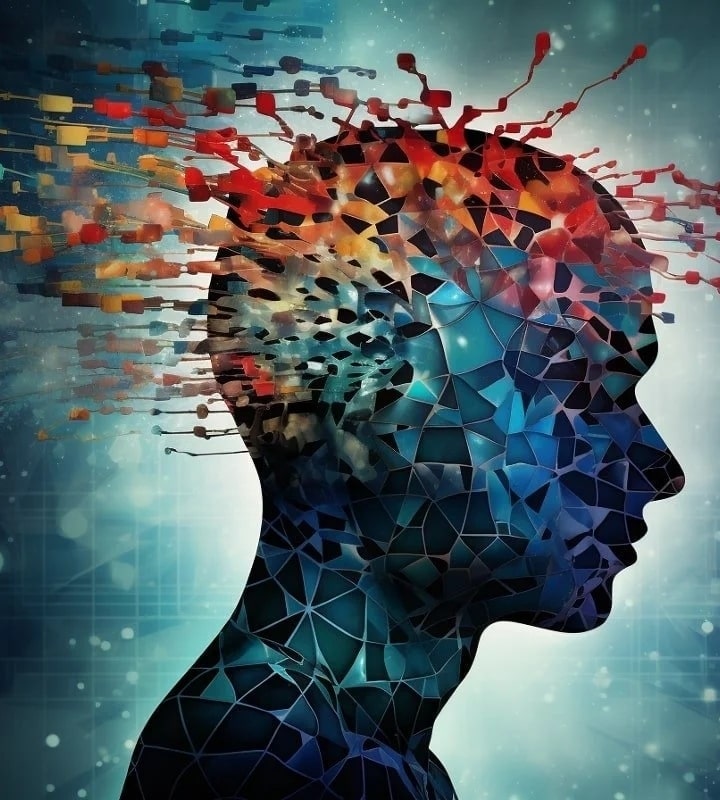Individuals with personality disorders often view their lives through a distorted lens. The reality of these individuals is a combination of inflexible and maladaptive patterns of thinking, feeling, and behaving. One significant consequence that these individuals share is the profound impact on their self-esteem.
Self-esteem is how you view and value yourself; it impacts your relationships, decisions, and happiness. An individual with a personality disorder often struggles with establishing self-esteem. Let’s understand the complex relationship and explore the influence of personality disorders on our confidence and self-perception.
Table of Contents
What is personality disorder?
It is a form of mental health condition that affects an individual’s way of thinking, feeling, and behaving. A person with this disorder faces difficulty forming and maintaining healthy relationships. They struggle to interact socially due to fear, suspicion, or inappropriate behaviors and have difficulty managing emotions effectively.
Types of personality disorders
Borderline personality disorder: This type of personality disorder affects an individual’s mood, relationships, and self-image. They generally have a fear of abandonment and therefore engage in impulsive behaviors to avoid rejection. They struggle with regulating emotions and face frequent emotional swings.
Narcissistic personality disorder: Individuals with this disorder often have an inflated sense of self-importance, a need for admiration, and a lack of empathy. They have a superior feeling to others and believe that they deserve special treatment. There’s also this feeling of envy that compels them to exploit others to achieve their own goals.
Avoidant personality disorder: this type of bipolar disorder is characterized by an extreme fear of social situations and negative evaluation. Individuals with an avoidant personality disorder often feel inadequate and unappealing. They have an intense fear of rejection, which leads them to avoid social interactions and new experiences.
Dependent personality disorder: the characteristic of this personality disorder is an excessive need for dependence on others for their emotional and physical support. This excessive nature of dependency is rooted in a feeling of helplessness, incapability, and inability to take care of themselves.
Understanding self-esteem
Self-esteem is a mirror of how we see ourselves; it’s a sense of our worth and value. Our self-esteem is how we perceive ourselves and judge our capabilities. It greatly depends on our emotions related to ourselves. Having a positive view of ourselves is very important to navigate our lives effectively, build healthy relationships, and maintain mental well-being.
The link between self-esteem and personality disorders
Low self-esteem can lay the foundation for various personality disorders. An individual experiencing trauma, or neglect at an early age can develop a sense of low self-worth. The peculiar behaviors associated with personality disorder can stem from a lack of self-worth. However, not all personality disorders develop in the same way when self-esteem is considered.
Self-esteem & Narcissistic Personality Disorder
People with this type of personality disorder often have an inflated sense of self-importance, a profound need for admiration, and a lack of empathy. Their ego and pride are often fragile and shield hidden feelings of inadequacy and external validation.
Many individuals with NPD struggle with underlying issues of low self-esteem. Any perceived criticism or lack of appreciation can lead to anger, rage, or manipulation. The need for constant admiration is their desperate attempt to validate their self-esteem. Their dire need for validation often drives people away from them, which can lead to isolation, broken relationships, and a sense of inadequacy.
Self-esteem & Borderline Personality Disorder
Borderline personality disorder is characterized by intense emotions, unstable relationships, and a distorted self-image. Individuals with BPD have a very fragile sense of self-esteem, leading them to constantly fight with themselves. One moment they might feel worthless, the next superior and important. This instability causes confusion and distress in the individual’s mind.
Their deep-rooted fear of abandonment contributes to their manipulative behavior, which results in pushing people away. Their tendency to believe in extremes makes them happy with a compliment and depressed with slight ignorance. This constant fluctuation in self-esteem can lead to impulsive and risky behaviors.
Self-esteem & Avoidant Personality Disorder
AvPd is characterized by a pattern of social inhibition, feelings of inadequacy, and a profoundly low sense of self-esteem. Individuals with this personality disorder often see themselves as inferior, unlovable, and socially distant. Their low self-esteem acts as a barrier, preventing them from expressing their true selves and forming meaningful connections.
Their fear of social rejection and possible criticism causes them to avoid interactions with others. The feeling is so intense that it prevents individuals from taking risks in social situations. It causes isolation and contributes to their negative self-beliefs.
Self-esteem & Dependent Personality Disorder
Individuals with dependent personalities have an intense need to be cared for and a crippling fear of being alone. These emotions stem from an unsure sense of self-worth, creating a complex situation. Like borderline personality, DPD also contributes to a lack of self-confidence. Individuals with DPD are not capable of taking care of themselves and making independent decisions. Their low self-esteem forces them to rely heavily on others for approval, validation, and a sense of self-worth.
People with this personality are very kind, compassionate, and possess a strong desire to please others. This prevents them from developing their own sense of identity and pursuing their goals independently.
Coping strategies and support
While personality disorders can have a significant impact on self-esteem, it’s important to remember that with the right support and resources, individuals can build a more positive and healthy self-image.
Living with a personality disorder can be a constant battle, and one of the most significant challenges is often a fragile sense of self-esteem. To overcome various challenges with personality disorders and self-esteem struggles, there are resources available to help.
Therapy: different psychotherapies like cognitive behavioral therapy (CBT) and dialectal behavioral therapy (DBT) can be powerful tools to manage problematic behaviors. CBT helps identify the negative thought patterns impacting self-esteem and develop healthier coping mechanisms. DBT equips you with various techniques to identify and manage intense emotions.
Support group: interacting with individuals who understand the challenges of personality disorder can be incredibly helpful. Support groups offer a safe space to share experiences and find encouragement to overcome critical situations.
Self-compassion: treating yourself with kindness and understanding, especially during distressful situations, can help you navigate emotions in a healthy pattern. Learning to practice self-compassion can help reduce negative self-talk and enhance self-esteem.
Mindfulness and self-awareness: indulging in mindful activities like exercising, and meditating can help you regulate your emotions. Practiced self-awareness can aid in understanding your thoughts, emotions, and behaviors, leading to greater self-acceptance and improved self-esteem.
Takeaway
Personality disorders can significantly impact self-esteem by causing a fragile sense of self, unstable emotions, and difficulty in relationships. These characteristics can lead to seeking constant validation from others, feeling rejected or worthless when your expectations aren’t met. This can cause you to engage in behaviors that further damage your self-image. However, by adapting various strategies and developing coping mechanisms, individuals with personality disorders can learn to build a more stable and positive sense of self-worth.










